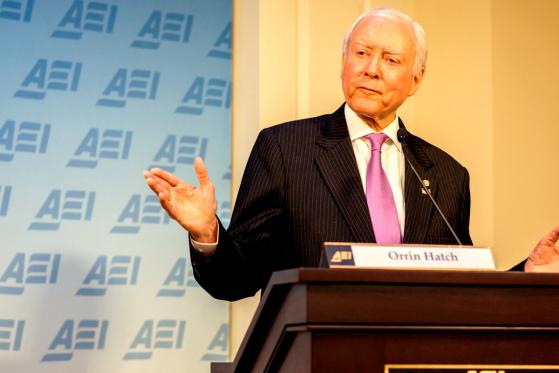The idea of self-regulation for the cryptocurrency market has largely been dismissed by Japan, South Korea, and several other countries around the world. A political think tank in the United States, however, believes that the market should be given a chance to do its thing.
The American Enterprise Institute published an essay today that could be summed up as an advocacy for self-regulation. To make its argument, the organization uses fiat currencies as an example.
“It bears remembering that the institutional arrangements under which fiat currencies are created and traded are themselves far from perfect. ‘Regulations’ seldom come with guarantees of improved performance. While ‘good’ regulations are welcomed, ‘bad’ regulations at best do no harm,” the AEI wrote.
The organization went on to say that self-governance already has a track record in the US banking sector of the 18th and 19th centuries, proving the concept “more effective” at correcting issues than the state ever could.
The AEI’s argument strongly revolves around the fact that if people do not trust an exchange, they will not use it. The market, after going through the initial turbulence of its birth process, consolidates around trustworthy key players and casts out the weaker, or less trustworthy, offers.
This eventually results in the emergence of financial analysts that would investigate exchange operations and work diligently for the public good with an incentive to do so.
To bring home that point, the AEI cites the investigation of Bitcoin and Tether transactions for the period between March 2017 and March 2018. The results by John Griffin and Amin Shams of the University of Texas demonstrate that Tether had a disproportionate share of the transactions that took place on Bitfinex.
More interesting is the fact that Bitcoin’s bull and bear runs were largely influenced with the buying and selling of Tether, suggesting some manipulation might have ocurred. The AEI argues that these results, if important enough for the public, may result in a loss of trust for some exchanges.
“To the extent that such information has been both identified and made publicly available, then if it does indeed cause trust in specific cryptocurrencies and exchanges to fall, one could expect self-governance arrangements to respond to the information. Credible exchanges having every incentive to signal their activities to current and potential customers will seek to quarantine themselves from tainted exchanges and currencies. The tainted currencies and exchanges will lose support, and must either desist from the undesired activities or exit the market,” the AEI concluded.
This article appeared first on Cryptovest
